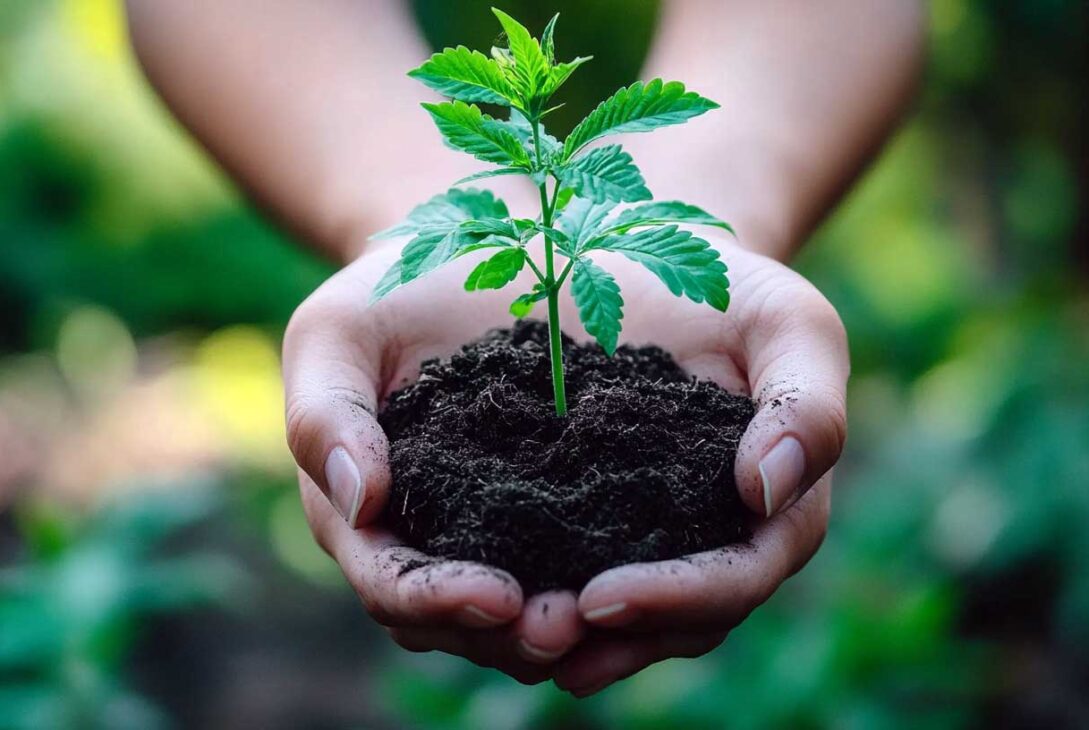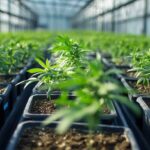As the demand for CBD products continues to rise, the interest in sustainable farming practices within the CBD industry is gaining traction. This article explores the potent intersection of CBD and sustainable agriculture, shedding light on how eco-friendly practices can enhance not only the quality of CBD products but also contribute to a healthier planet.
Introduction to Sustainable CBD Production
CBD, or cannabidiol, is derived from hemp—a plant that, by its very nature, boasts a plethora of environmental advantages. Unlike many traditional crops, hemp thrives with minimal resources, requiring less land, water, and pesticides to flourish. This makes hemp an incredibly sustainable choice for those looking to produce CBD products while also respecting the environment.
Benefits of Sustainable CBD Production
Environmental Benefits
The eco-friendly profile of hemp is multifaceted:
- Water Conservation: Hemp cultivation demands significantly less water compared to most agricultural crops. Farmers can further enhance this sustainability through techniques like drip irrigation and rainwater harvesting, minimizing water waste and ensuring that local water resources are preserved.
- Soil Health: One of hemp’s remarkable attributes is its ability to bolster soil health. Its deep root system helps prevent soil erosion, while also enriching the soil with nutrients. Practices such as using compost and manure not only support healthy plant growth but also maintain biodiversity in farming ecosystems.
- Air Purification: Hemp plays an active role in combating climate change by absorbing carbon dioxide during photosynthesis. This air purification capability makes hemp a beneficial crop in the ongoing battle against global warming.
Economic Benefits
The push for sustainable farming practices extends into positive economic outcomes:
- Cost-Effectiveness: Implementing sustainable practices can lead to substantial cost savings. By utilizing organic farming techniques and energy-efficient methods, farmers can reduce their reliance on expensive chemical inputs, resulting in overall lower operational costs.
- Market Demand: With consumers growing increasingly aware of environmental issues, there’s a notable trend towards supporting products that are sustainably produced. Many consumers are willing to pay a premium for CBD products that boast eco-friendly cultivation methods, giving producers who prioritize sustainability a pivotal competitive edge.
Social Responsibility
In a world entwined with social consciousness, sustainable farming practices resonate deeply with consumers:
- Consumer Trust: Brands that are transparent about their sustainable practices tend to foster brand loyalty. When consumers understand the origins of their products and the methods used in production, it builds trust and attracts a growing demographic of eco-conscious buyers.
Sustainable Farming Practices in CBD Production
To fully harness the benefits of sustainability in CBD production, several practices stand out:
Organic Farming Practices
- Pesticide-Free Cultivation: Organic farming techniques eschew synthetic pesticides and fertilizers, opting instead for natural alternatives. Biological controls and organic pesticides maintain ecological balance and foster healthier soil ecosystems.
Energy-Efficient Cultivation Methods
- Renewable Energy Sources: Utilizing solar or wind energy can dramatically lower the carbon footprint of hemp farms. Additionally, energy-efficient equipment like LED lights and climate-controlled growth environments can further reduce energy consumption.
- Sustainable Extraction Methods: The extraction of CBD can also be made more sustainable. Processes like CO₂ extraction can be enhanced by recycling CO₂, while ethanol extraction using renewable sources adds an eco-friendly dimension to the lifecycle of CBD products.
Water Conservation Techniques
- Drip Irrigation and Rainwater Harvesting: These modern methods provide targeted hydration directly to plant roots and capture rainwater for irrigation, reducing reliance on local water supplies.
Waste Management
- Reducing Waste: Sustainable farming isn’t just about resource conservation; it also involves minimizing waste. Innovations such as recycling plant materials and implementing biodegradable packaging contribute to a circular economy that continuously reuses materials rather than discarding them.
Eco-Friendly CBD Products and Their Impact
The implications of sustainable practices extend into the market landscape, making notable impacts:
Packaging Innovation
As concerns about plastic waste mount, CBD companies are innovating with their packaging solutions. By utilizing recyclable and biodegradable materials, they not only lessen their environmental footprint but also align themselves with consumer values focused on sustainability.
Health and Wellness Benefits
Sustainable practices inherently lead to the production of high-quality CBD products that are devoid of harmful chemicals. Organic farming and regenerative agriculture techniques ensure that these products are beneficial for both personal health and the environment.
Market Impact and Consumer Trends
As the market evolves, the intersection of sustainability and consumer choice becomes increasingly clear:
Growing Consumer Preference
A shift is evident; modern consumers are gravitating towards products that exhibit a commitment to sustainability. Many are ready to invest more in products that align with their values regarding environmental responsibility, driving producers to adopt sustainable methods to stay competitive.
Brand Loyalty and Trust
Companies that prioritize transparency and the adoption of sustainable practices cultivate an environment of trust and brand loyalty among their clientele. This trend significantly enhances the market demand for sustainable CBD products.
Conclusion
The crossroads of CBD and sustainable farming practices is not just an emerging trend but a necessary evolution within the industry. By embracing eco-friendly cultivation methods, the CBD sector can significantly mitigate its environmental impact while simultaneously offering high-quality products that resonate with an increasingly conscientious consumer base.
For individuals passionate about supporting sustainable CBD production, consider the following:
- Opt for Sustainable Brands: Research and choose CBD products from companies that prioritize organic farming and sustainable cultivation methods.
- Look for Eco-Friendly Packaging: Seek out those whose packaging demonstrates a commitment to recyclability and biodegradability.
- Support Local Producers: Whenever possible, choose locally sourced CBD products to minimize transportation emissions and bolster local economies.
Integrating sustainable farming practices into the production of CBD not only promises health benefits for you as a consumer but also nurtures a healthier planet for generations to come.
This evolving landscape lays a path toward a future where personal wellness and environmental stewardship coexist harmoniously, making the world a better place, one hemp field at a time.



















